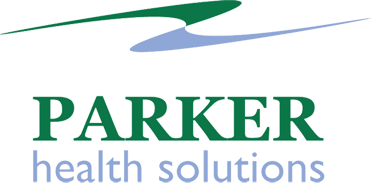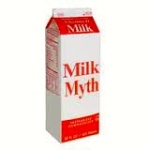Calcium, not milk, does the body good.
Is milk really necessary to keep you healthy and provide the calcium you need every day? You would think so after seeing celebrities and athletes pose with that trademark milk mustache and seeing all the “Milk- it does the body good” commercials. Kudos to the marketing agencies who, once again, have convinced us to buy into their advertisements while independent research proves otherwise. While milk does have some calcium, it is far from the best food source of the essential nutrient. And with 25% of the American population lacking the ability to digest the milk sugar lactose, it becomes even less attractive. The best sources of calcium are plants, particularly dark, leafy greens, which also contain vitamins C and K, nutrients that are necessary to move the calcium into bones.
But what about growing kids? Don’t all children need milk? Not so much. Parents and schools offer kids sugar-laden flavored milks thinking that despite the sugar, they are helping their kids to grow healthy bones and teeth. The benefit of the small amount of calcium the kids get from the milk pales drastically in comparison to the negative effects the extra sugar does to their growing tissues. The only time we would recommend kids drinking plain milk is if they have an incredibly poor diet. Kids that are living on donuts, chicken nuggets, french fries and pizza have bodies so devoid of any nutrition that milk would be an upgrade.
How about helping with osteoporosis? Once again, a resounding no. Osteoporosis and its precursor, osteopenia, are found in over 50 million Americans, even though the U.S. is one of the top dairy consumers in the world. We have one of the highest rates of bone fractures, while countries that consume the lowest amounts of milk have the lowest. Research shows that osteoporosis is about genetics and lifestyle, not drinking milk. Things that rob calcium from ours bones are very prevalent in the American diet, excess sodium, alcohol, excess animal protein, and caffeine. The best way to prevent osteoporosis is to get plenty of weight-bearing exercise and to eat a diet rich in nutrient-dense plants and vitamin D rich foods, like salmon and sardines.
Not only is milk a very poor calcium source, there is a well established link between drinking it and certain types of cancer. Cow’s milk is high in a hormone called IGF-1, which encourages cell growth and discourages cell death. Studies show adults with high levels of this IGF-1 are at increased risk of prostate, breast, and colon cancer. These high levels can accrue starting in childhood. Modern dairy practices significantly increase the unhealthy estrogen levels in milk. These estrogens are 100,000 times more potent than environmental estrogens known to cause breast and ovarian cancer. Pretty scary!
So, skip the milk and opt for these foods that are rich in calcium: dark leafy greens (spinach, kale, arugula, collard & mustard greens), broccoli, okra, chinese cabbage, green snap beans, raw almonds, rhubarb, sardines, sesame seeds, figs, salmon, and white beans. If these foods don’t make it into your daily diet often enough, consider taking a low dose calcium supplement in a lactate or citrate form.
If you are a fan of milk, and want to consume it regardless of its less than stellar calcium levels, we suggest using raw organic milk. It does not contain antibiotics, growth hormones, and pesticide residues. Clean, raw milk, properly collected from cows fed clean, organic grass is perfectly safe and contains many beneficial amino acids, fatty acids and enzymes. Pasteurization destroys enzymes, destroys beneficial bacteria, lowers vitamin content, and promotes disease-causing microbes. Calves fed pasteurized milk frequently die before reaching maturity, even though the milk originally came from their mom. Yikes! It is best to get raw milk from a farm that your are familiar with and can trust.

